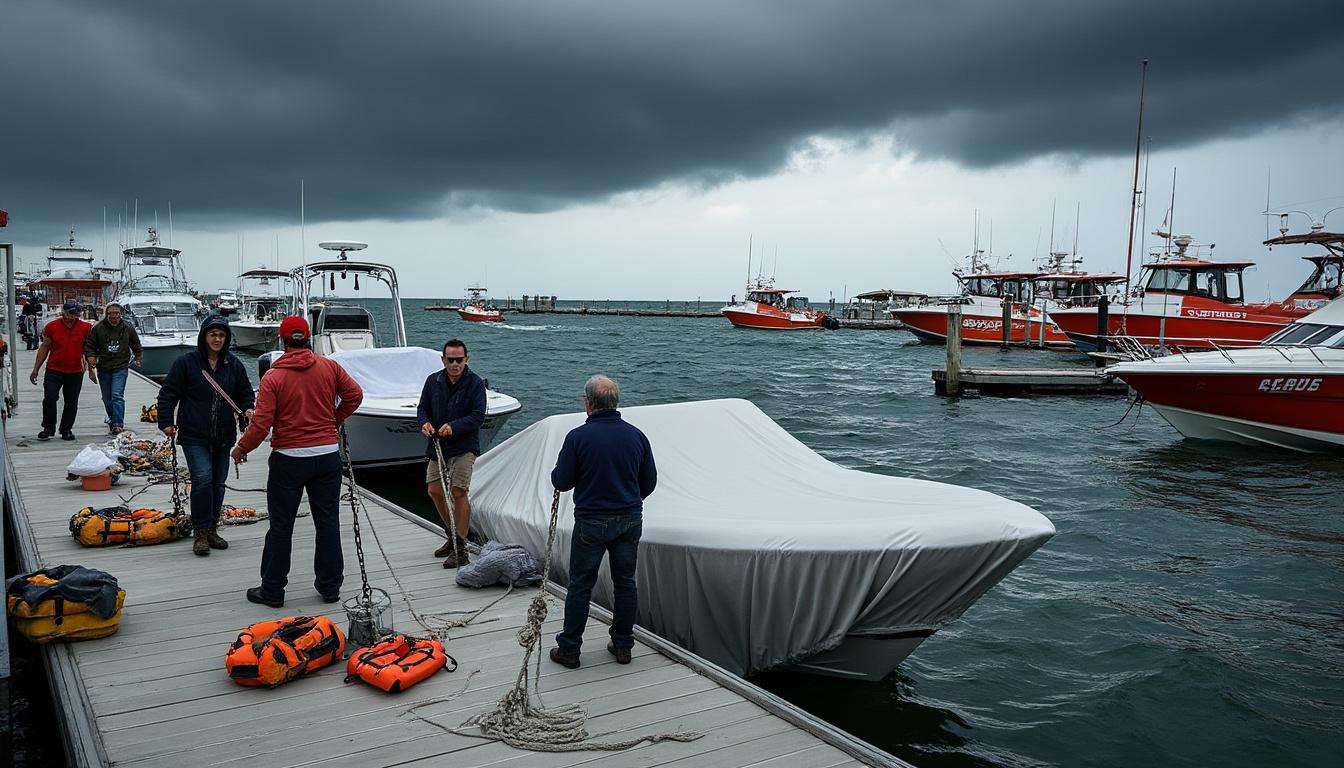As the 2025 Atlantic hurricane season approaches, boat owners face a renewed urgency to safeguard their vessels against increasingly intense storms. Following a devastating 2024 marked by multiple billion-dollar hurricanes in Florida, with experts forecasting up to 19 named storms including nine hurricanes this year, preparedness has never been more critical. Sea Tow, a leading marine assistance provider with decades of hurricane response experience, stresses that early planning and concrete action are essential to protecting boats and minimizing costly damages. This article highlights timely hurricane preparation strategies, from insurance insights to securing vessels, ensuring boaters can face the season with confidence.
Effective Hurricane Preparation Tips for Boaters from Sea Tow
Sea Tow’s seasoned captains, who have assisted with recovery efforts for nearly every major Atlantic hurricane since 1989, emphasize that thorough preparation prior to the storm season is vital to mitigating risks. The 2024 season, especially in Southwest Florida, demonstrated this vividly, where storms like Helene and Milton caused widespread flooding and close to $5 billion in damages, with cleanup still underway.
To counter such threats in 2025, boat owners are encouraged to adopt the following actionable steps:
- Develop a comprehensive storm plan: Include evacuation routes, safe storage locations, and steps to take post-storm, particularly if your home dock is damaged.
- Review and update insurance policies: Confirm coverage details, ensure it fits hurricane risks, and keep documentation readily accessible. Insurance providers like BoatU.S. and others often require a hurricane response plan for claims.
- Document your vessel condition: Take clear photos of your boat and equipment before storms to streamline any future insurance claims.
- Coordinate with service providers early: Marinas and hauling services such as those offered by West Marine and Shoreline Marine can have lengthy waitlists during peak season, so prearranging services is crucial.
- Understand your marina’s hurricane plan: Knowing your responsibilities and the facility’s protocols can prevent costly mistakes.
These steps form a foundational approach that prevents last-minute scrambling and potential losses during hurricane season.
Securing Your Boat with Advanced Techniques and Technology
Simple storage on a lift or slip does not guarantee safety. Sea Tow advises double-lining all mooring ropes and employing cross-line techniques to stabilize vessels effectively. Additionally, removing sails, fishing gear, and other loose items that can become projectiles is essential. Technological aids from brands like ACR Electronics and Garmin can enhance security measures:
- Use tracking devices: Placing trackers on your boat aids recovery if it becomes displaced during a storm surge.
- Validate and maintain bilge pumps and float switches: These devices help prevent flooding onboard, a crucial protection especially when pumps can fail under duress.
- Secure hatches and antennas: Properly fasten deck hatches and lower communication antennas, such as those compatible with SiriusXM Marine, to minimize damage.
If no safe marina storage is available, tie your boat securely in the slip’s center to allow vertical movement with storm surges without compromising mooring line strength.
The Importance of Insurance and Professional Assistance During Hurricane Season
Insurance coverage tailored to hurricane risks is indispensable. Not only does it provide financial protection, but it also ensures access to professional post-storm recovery services. Companies like Mercury Marine collaborate with insurers to offer innovative coverage solutions that adapt to modern hurricane challenges.
Sea Tow’s extensive disaster recovery support includes raising sunken boats, repositioning displaced vessels, and working directly with insurers to streamline claims – a service invaluable to boaters navigating post-hurricane chaos.
- Always engage licensed and insured recovery companies: This guarantees trustworthy, professional service and prevents fraud or further damage.
- Know local emergency contacts and Sea Tow locations: Use Sea Tow’s service locator to find nearby assistance promptly during emergencies.
Combining strong insurance coverage with professional recovery services ensures peace of mind through hurricane season volatility.
Practical Steps for Ongoing Post-Storm Vigilance
After the hurricane passes, boat owners must remain alert for hazards such as floating debris or damaged docks. Follow these recommendations for safety and vessel integrity checking:
- Inspect your boat carefully for damages without boarding unsafe structures.
- Cordially engage with professional inspectors or marine surveyors before attempting repairs.
- Document any damage photo-wise to facilitate insurance claims.
- Keep bilge pumps running and drain plugs removed if your boat is on land to prevent water accumulation.
Longstanding brands like Raymarine and Yamaha offer durable marine equipment that withstands harsh weather, an important consideration when selecting post-storm replacement parts or upgrades.
Frequently Asked Questions about Hurricane Preparation for Boaters
- Q: When should I start hurricane preparations for my boat?
A: Begin as early as May or June to secure hauling services and confirm insurance details, well before the peak months of August and September. - Q: Are boats on lifts completely safe during a hurricane?
A: No, boats on lifts can still sustain significant damage or drift away if lines fail. Doubling lines and cross-tying are essential precautions. - Q: What insurance coverage should I prioritize for hurricane season?
A: Verify that your policy includes comprehensive hurricane clauses and specific boat storage plans. Check with providers like BoatU.S. and Mercury Marine’s innovative plans for up-to-date options. - Q: Can I rely solely on marina hurricane plans for protecting my boat?
A: While marina plans are helpful, personal preparedness, including understanding your responsibilities and supplementing with your own storm plan, is indispensable. - Q: How do I find immediate assistance if my boat is damaged?
A: Contact your local Sea Tow franchise or visit their service locator for prompt professional help.


